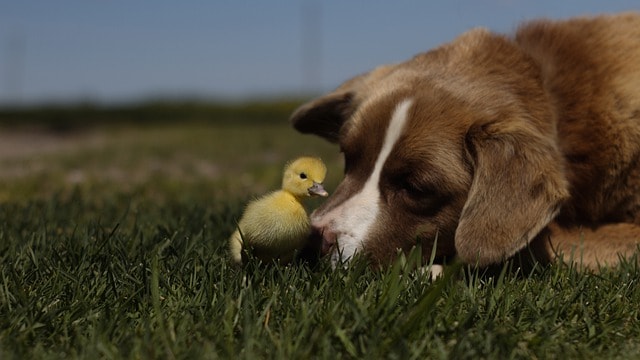When you search on Google, “why do dogs eat grass”, you will usually stumble upon results stating that it is because they want to throw up, however, this is a myth.
Most species of grasses do not induce vomiting, and you also have to consider the possibility that your dog’s stomach is already upset, to begin with.
This myth was further debunked by research conducted by the University of California, Davis in 2008.
The objective was to test the hypothesis that grass-eating in dogs is linked with an illness that leads to vomiting.
In the final study with 1,571 participants, 68% of the respondents reported that they noticed their dogs consume grass on a daily or weekly basis.
While there’s no definite reason that explains why dogs love to eat grass, this confirms that grass-eating is indeed a common behavior in them.
Another finding was that out of 1571, only 22% or 346 dog owners said that their dog regularly vomited after ingesting grass.
Interestingly, this is more common for younger dogs than older ones, and especially if they already showed signs of sickness before they begin eating grass. So far, this is the only scientific study that was conducted investigating this topic.
The good news is we were able to understand that grass-eating is not an abnormal behavior in dogs so you can rest easy the next time you see your dog grazing some fresh green grass.
Table of Contents
Why does my dog eat grass then throw up?
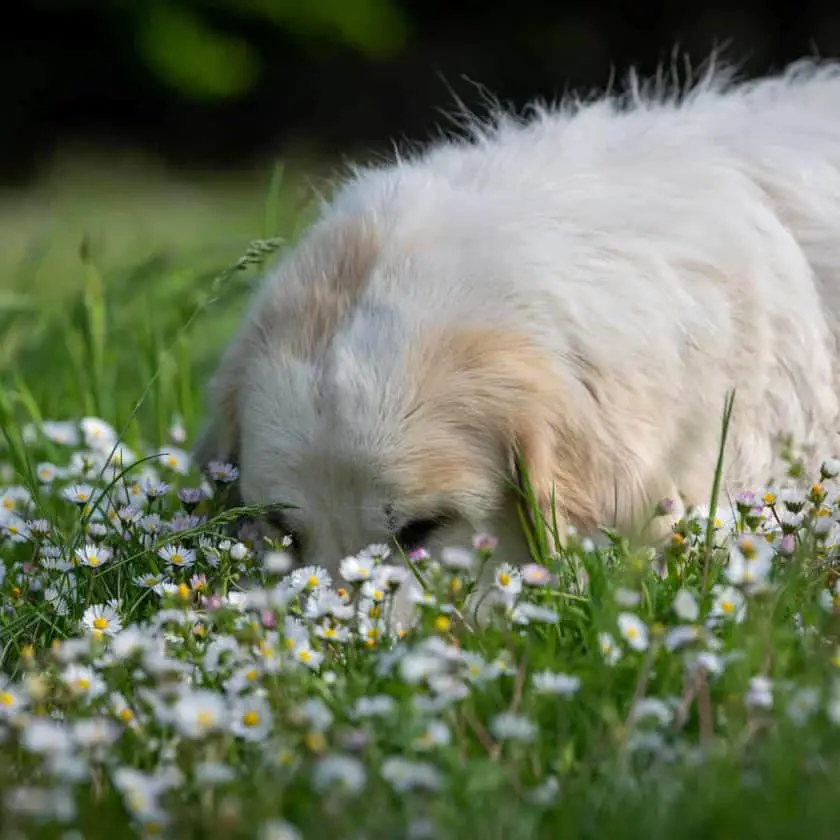
If most grasses do not cause vomiting, then why does my dog eat grass and then vomit?
The main reason behind this is not because of the grass itself, but your dog’s stomach might already feeling upset in the first place, and eating grass is a way for them to trigger vomiting.
In short, your dog is already about to throw up, and grass only makes it easier.
So if you will ask, how does exactly eating grass causes a dog to vomit? The answer does not lie in the components of the grass, but simply in its structure.
According to a study, long pieces of grass stimulate the dog’s throat. This is the same case for humans except that dogs cannot tickle their throat with their paws so they use grass instead.
Does eating grass make dogs sick?
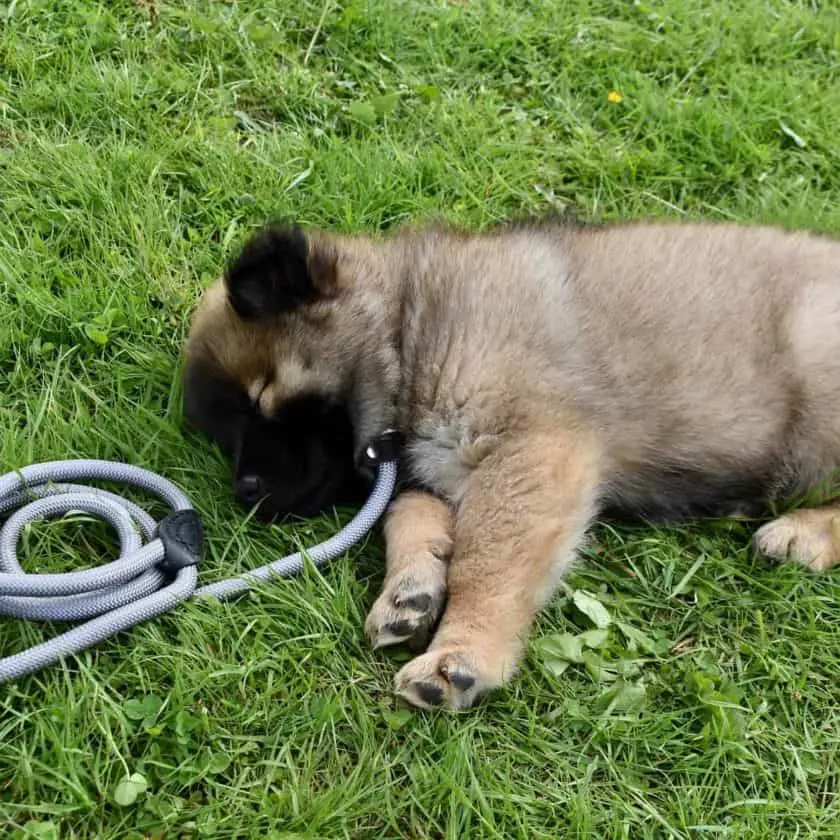
Most experts agree that allowing your dog to eat grass is not harmful to their health.
In some cases, it can even be beneficial to their diet since it’s a good source of dietary fiber.
However, we have to be mindful since we don’t know if those grasses are loaded with toxic chemicals like herbicides, pesticides, and fertilizers.
Since we couldn’t stop our dogs completely from going to our yard, veterinarians suggest using pet-friendly yard sprays or make a special grazing spot for your pooch and teach them to only eat from that area.
If you notice that your dog is consuming more grass than usual, you may want to add healthy herbs and spices like basil, rosemary, parsley, and oregano to their diet or, better yet, get an appointment with your vet.
Why is my puppy eating grass?
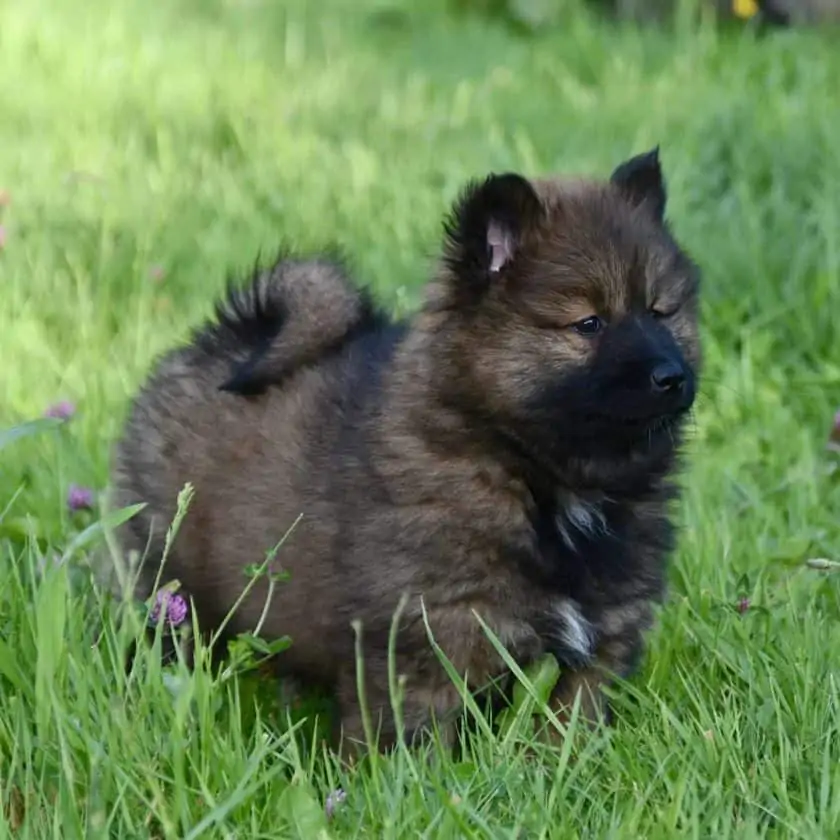
Grass eating is a common behavior that even puppies engage in especially if they’re teething.
However, you should be extra careful because munching a lot of grass, and weeds may lead to airway obstruction.
Another reason why you should not allow your puppies from eating grass is that it is not very nutritious for them.
Puppies have specific nutritional requirements that are needed for their development.
The four essential nutrients are protein, calcium, digestible carbohydrates, and fat.
Grasses cannot supply any of these nutrients and may even expose them to parasitic infections like ringworms, roundworms, and fleas.
How do you settle a dog’s upset stomach?
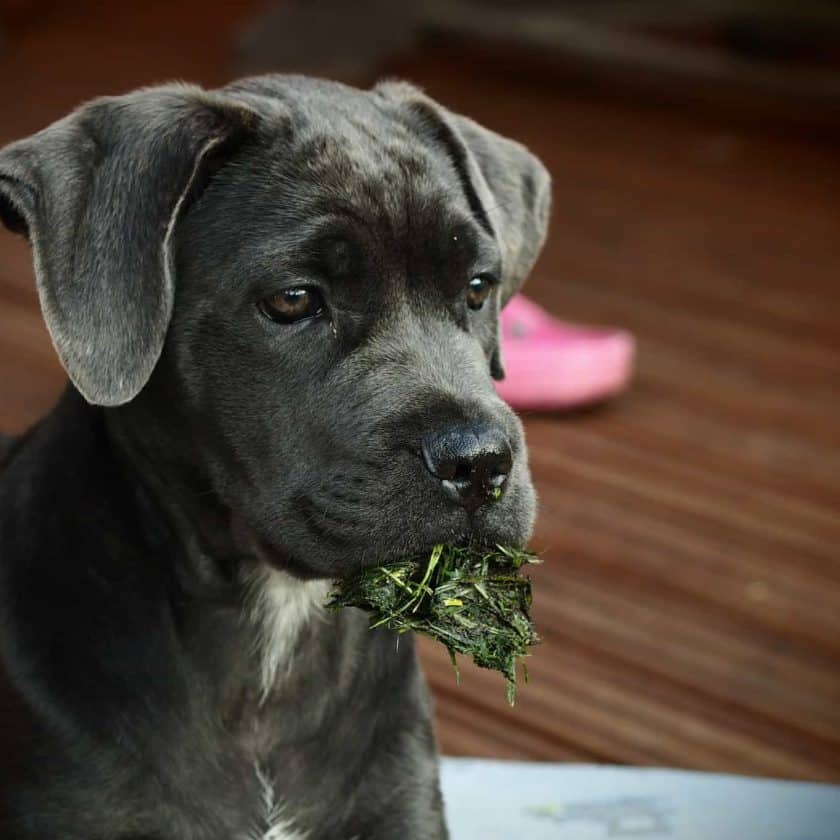
Occasional vomiting in dogs is generally harmless.
Like in humans, vomiting can help them remove food or something that irritates their stomach, and they will eventually start to feel much better afterward.
But despite that, sometimes vomiting is not enough to help a dog with an upset stomach. Here are the following home remedies you can try to cure your dog’s tummy ache:
1. Give your dog a plain canned pumpkin
Pumpkin is one of the best remedies for dogs having indigestion.
It is high in soluble fiber which adds bulk to your dog’s poop by absorbing water.
It also has a low glycemic index which decreases the pH level of the large intestines promoting the growth of healthy bacteria in the area.
2. Keep your pooch hydrated
If your dog is experiencing severe diarrhea, he is losing a lot of water that may lead to dehydration.
Dehydration is dangerous to dogs as it can lead to multiple organ failure within hours.
The dilemma here, however, is giving too much water will upset his tummy even more.
What you can do instead is to give your dog some ice cubes every 2 to 3 hours.
If his diarrhea persists, you can go to the nearest drugstore and purchase unflavored Pedialyte because your dog is not only losing water, but also important electrolytes.
3. Use medication
Pepto-Bismol or Pepcid is the colorful pink pill commonly used to treat diarrhea in humans.
It is also safe for dogs as long as the veterinarian confirms the correct dosage.
The suggested dose is one teaspoon for every 10 pounds and is given every six to eight hours.
To administer Pepto-Bismol to your dog, crush the pill, and mix it with water.
Using an empty plastic syringe (without needle), get the desired dose, and push the plunger on the posterior part of your dog’s mouth.
Close his muzzle for a few seconds to prevent him from spitting it out.
When should I go to the vet if my dog keeps throwing up?
Most of the time, eating grass does not possess danger to dogs.
But if you notice these following signs then you should consult your vet.
- Your dog’s grass-eating behavior becomes excessive,
- Your dog prefers to eat grass than his usual dog food.
- Your dog continuously eats grass, and pukes over a short period.
- Your dog is sick but still chews on the grass.

